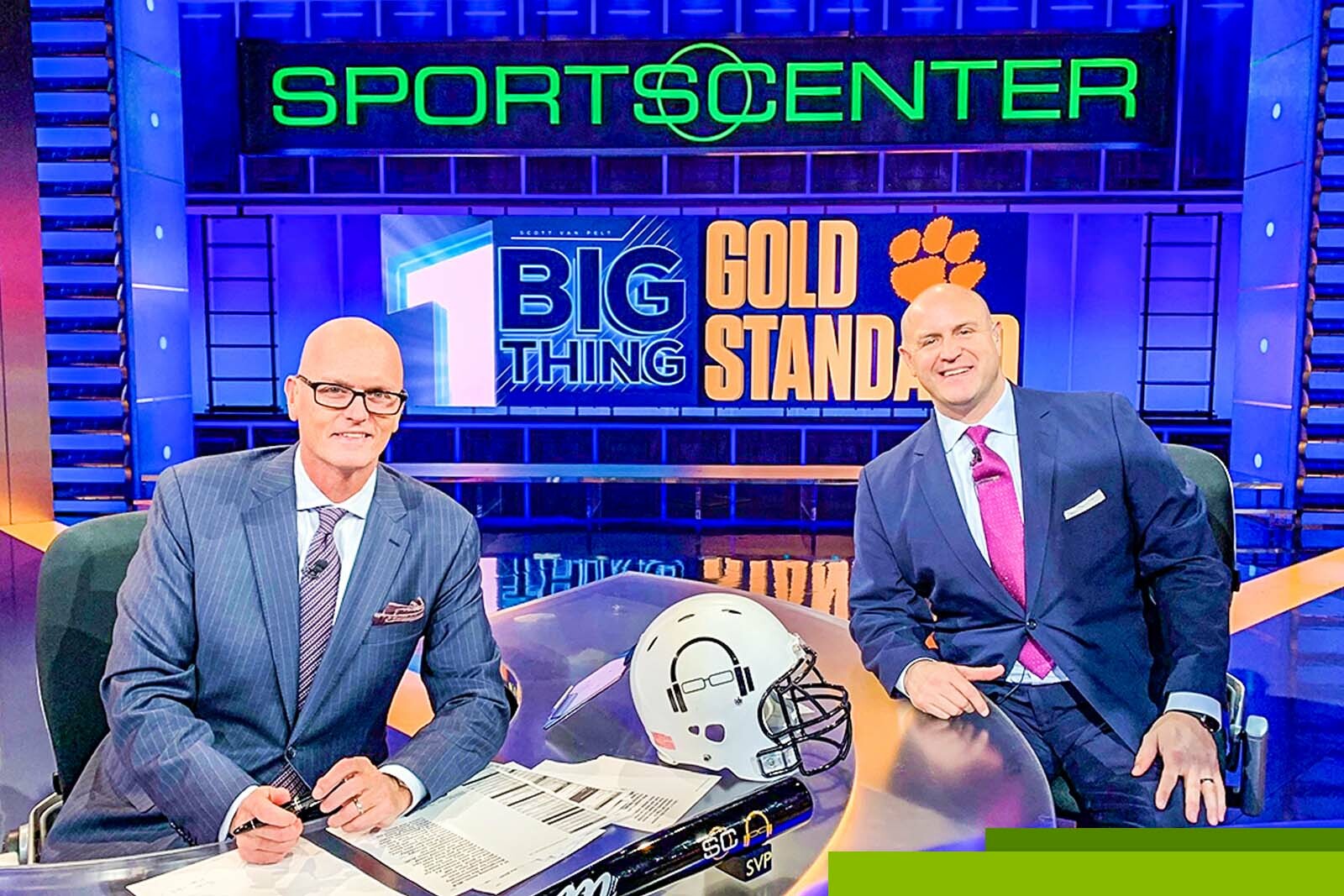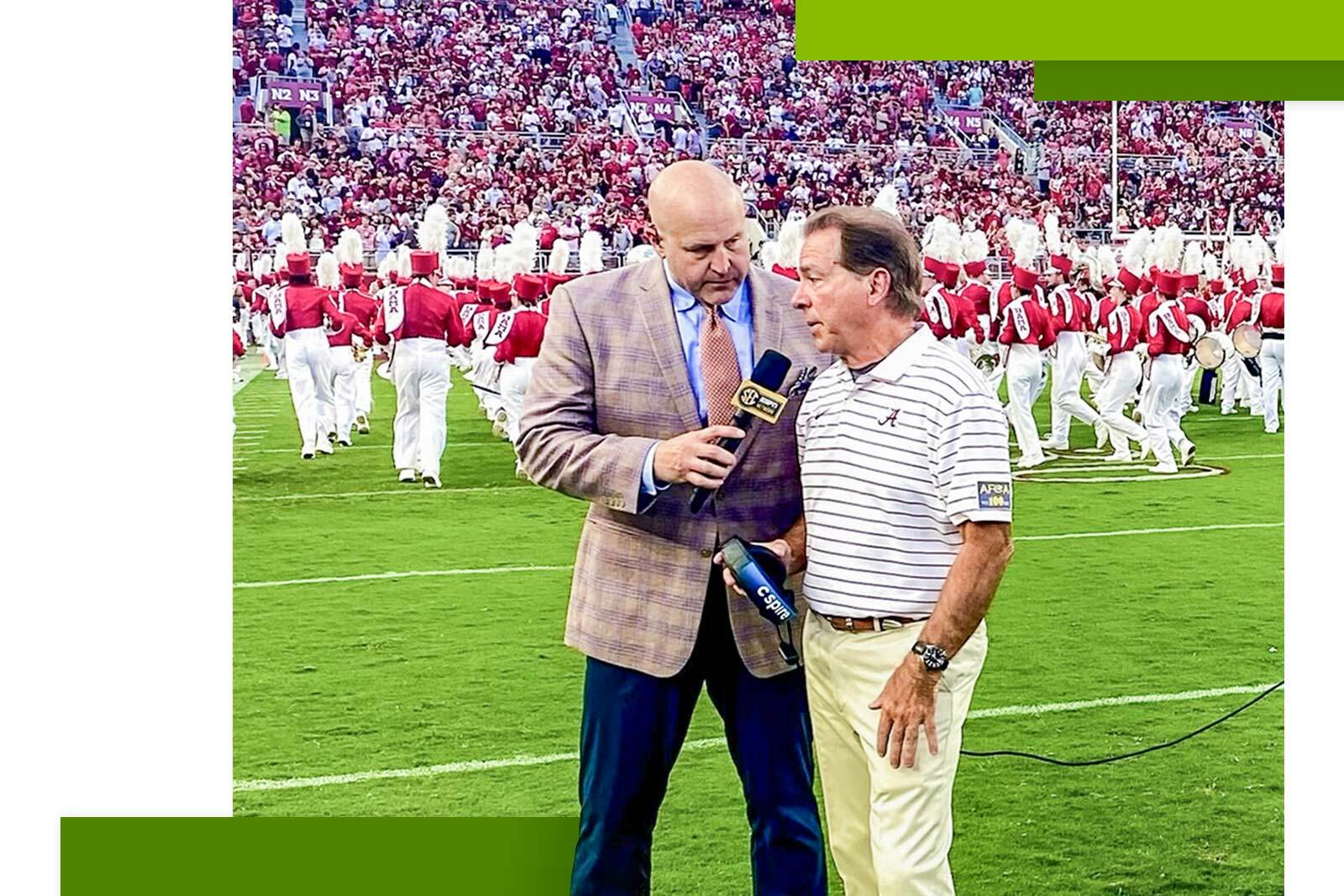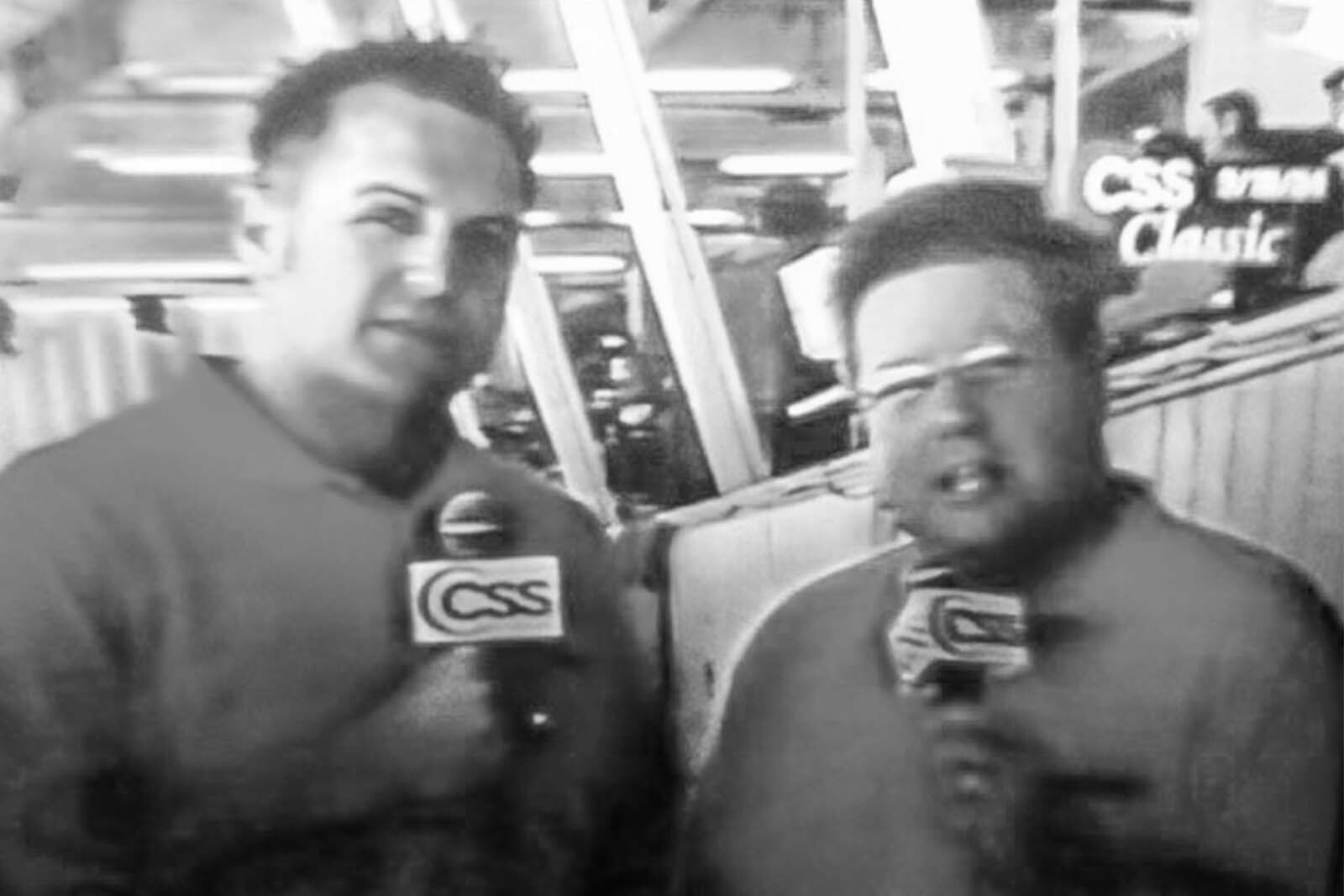Cole Cubelic is living the dream.
Monday through Friday mornings, he teams with Greg McElroy on WJOX radio for “McElroy and Cubelic in the Morning,” providing the rarity of sports talk shows: legitimate insight from two former SEC football stars.
I’ve really got two dream jobs now. Cole Cubelic
And on autumn Saturdays, he roams sidelines across the South for insider information as part of the popular “SEC Saturday Night” team on the SEC Network. Cubelic, play-by-play broadcaster Tom Hart and analyst Jordan Rodgers come across differently, sounding like best buds watching a game from the Man Cave.
“I’ve really got two dream jobs now,” said Cubelic, a native of Birmingham, Alabama, where JOX-94.5 FM is one of the nation’s highest-rated stations. “To be honest, I never thought I’d be in this spot. As a kid, I listened to JOX on the way to school.”
Getting there, though, took a lot of time and effort, a few near misses and a lot of determination – even after a stellar career at Auburn, where he was a team captain and three-year starter on the offensive line majoring in communications.
But his path to his dream jobs was almost derailed from the start.
“I wanted to go into sports media right out of college, but, at the time, it seemed like a pipe dream,” Cubelic said. “Back then, there were just a few team websites and even fewer podcasts. There were no games on ESPN-Plus. Basically, you had established AM radio hosts and two or three TV crews. That was it.”
The need to put food on the table trumped all that, so he took a job selling pharmaceuticals, with help polishing up his resume from an aunt in the business. The money was good, yet he felt unfulfilled.
I wanted to go into sports media right out of college, but, at the time, it seemed like a pipe dream. Cole Cubelic
He approached radio stations looking for a part-time gig talking college football. Steve Shelton, who owned a cluster of radio stations in Huntsville including The Rocket, part of the Auburn Network, was willing to listen.
“I showed up in a silver Pontiac Grand Prix, where I met Steve and (former Auburn quarterback) Ben Leard, who was in pharmaceutical sales in Decatur. We said, ‘We were on the team last year. We know the players. We know what’s going on.’”
Shelton was hooked.
“That’s when I learned a valuable lesson,” Cubelic said. “Steve said, ‘That sounds great. If you can sell it, we’ll put you on the air.” In other words, Cubelic and Leard had to line up advertisers themselves to pay for the time.
From the onset, he was hooked. But when he called his mom to tell her how much he loved the new gig, she told him not quit his day job. That message stuck.
Cubelic had a dependable job, a passion to pursue on weekends and additional revenue streams. That led to more radio opportunities and calling games on cable. And, by 2010, he had put aside a year’s salary to pursue his dream of becoming a full-time broadcaster. Goodbye, day job. Hello, reality.
“I said, ‘I’m going to make this work. I was doing games on CSS. I thought it was great, and so much fun.”
There were opportunities, but not security. He was getting work, but not enough to sustain a family.

When he heard an ESPN competitor had an opening for an analyst on their college football broadcasts, he put in a call, provided his beefed-up resume, offered to work for free and waited for the good news. Instead, he was told that fans watching Alabama or Georgia didn’t want to see a former Auburn Tiger on the sideline.
By 2013, he was still searching when his wife Katherine told him not to give up.
“She worked at Redstone Arsenal and had a great salary and benefits,” Cubelic said. “In all honesty, she supported me for a couple of years without complaint. I’ll forever be grateful for that.”
He tried other non-football part-time jobs to help with family expenses. Then, finally, came the call from an entrenched sports talk station in Huntsville, the UMP, offering him salary and commissions. Yet the quest to find the same kind of job on fall Saturdays remained elusive.
Enter Katherine Cubelic, once again.
“I was home one Saturday, watching college football, and my wife came down, turned off the TV and said, ‘We need to have a real conversation. I can’t have Miserable Cole at home for 15 Saturdays. You’re good enough to do this, so let’s figure it out.”
He arrived at SEC Media Days in 2014, down the road in Hoover, in time to learn he’d been turned down for a network analyst gig he had pinned his hopes on. But a day later, he got a call from ESPN headquarters in Connecticut, learning he would be teamed with Mike Couzens and Kevin Weidl on televised games for the upcoming season.
“We did the most random assortment of games – Sun Belt, American, SEC on ESPN plus, Mountain West, and even high school. You never knew where you were going one week to the next, and it was great.”
ESPN took notice. A couple of seasons later, he was teamed with Hart and analyst Andre Ware, the former Heisman Trophy winner. Then, that team morphed into the current “SEC Saturday Night” crew of Hart, Rodgers and Cubelic on the SEC Network.

“I call them my work family because in the fall I spend as much time with them as I do my real family. We’re friends on the road. We’re talking on the phone when we’re not working.
“I just feel blessed to be teamed with them. Jordan is a really good analyst – I don’t think he gets the credit he’s due. Tom is the most talented play-by-play person we have on ESPN. When we’re on the air, we emphasize having fun. It doesn’t feel like work.”
They’re willing to take chances. Last year, the trio called the Arkansas-Ole Miss game from field level. That’s Cubelic’s normal vantage point, but it’s a precarious view for a crew trying to track a football game.
“The line of sight is so difficult,” Cubelic said. “But the game was a blowout, and we had fun with it. We actually got a little loose as the game went on.”
His relationship with his morning radio partner, McElroy, also developed over time. They were first paired in the (Paul) Finebaum Film Room broadcast of a championship game. Afterward, McElroy pulled Cubelic aside and said, “You need to be doing this. You’re really good.”
By the time McElroy moved back to Birmingham, at least where he is when he’s not doing his own ESPN national games every weekend, Cubelic was entrenched at JOX. When an opening on the morning show came up, the station quickly paired the former Auburn lineman and the Alabama quarterback together for three hours each day.
“We have a real friendship, but it’s really more of a mutual admiration for each other,” Cubelic said. “Few people can challenge me on football knowledge, but Greg can and does. So, working with him is a challenge, which is exactly what I need.”

5 Questions with Cole Cubelic
Peak into your crystal ball and give us your playoff field for this season.
I picked Georgia, Michigan, Washington and Texas. I think Alabama and LSU offset themselves having Texas and Florida State on the schedule. Think about this: Texas can absorb an Alabama loss and still get in, but Alabama and LSU can’t because of the schedules they play.
Is there a dark horse in the SEC that no one’s paying attention to?
I think the team in the SEC that needs a little discussion is Kentucky. Devin Leary was a top five quarterback two years ago. Ray Davis ran for more than 1,000 yards at Vanderbilt. And they may have the best wide receiver room they’ve had. Most people view them as a 6-6 or 7-5 team but I see them as a potential 9-win team. The schedule really lines up well.
If you were the College Football Czar, what would you do first to ensure the sport’s longevity?
I would realign the conferences. First, I would prevent the Pac-12 from dying. I think rivalries with regional prominence are very good for college football. And getting away from divisions isn’t great. I don’t know if we’re going to keep a lot of the rivalries that are under the radar, like Alabama-Mississippi State and Auburn-Arkansas.
I would not expand the playoff. Instead, I’d find a formula that picks a better field, but I would also come up with a viable playoff for the Group of 5. I think people would watch it, and it would become a lifeline for these programs. Right now, they’re hanging on a thread for so-called “paycheck games” that may be going away. For their future health, you need sustained revenue. That’s why a playoff system with the Western Athletic, the MAC, the American, Conference USA and Sun Belt would work.
Where do you see college football in 10 years?
In 10 years I’m not even sure I see the SEC and Big Ten as part of the NCAA. In fact, I can foresee the NCAA being out of the college football business by then. Do they have their own playoff system? But the bigger unknown is with everyone else. Can the ACC and Big 12 hang on? Can the Pac-12 revitalize itself? What about the Group of Five? The scary part for them is this: they’ll hang on as long as humanly possible for that one spot in the playoff. My solution, if you’re going to have a 12-team playoff, is to let at least two Group of 5 teams in and give them a real chance.
You’ve called a lot of games in varied places. Is there an atmosphere that surprised you?
Two have been the most surprising – BYU and North Dakota State. North Dakota State had the most disciplined, intelligent fans anywhere. As soon as the offense comes out of the huddle, there’s immediate silence. As soon as the other team gets the ball, they’re making all kinds of racket. Those fans know the game so well. Now, when I’ve gone to games in Provo (Utah), BYU was incredibly loud and energetic, and the atmosphere was fun. As for the view, it is impeccable. Whatever my perception was, BYU exceeded that four or five times over.